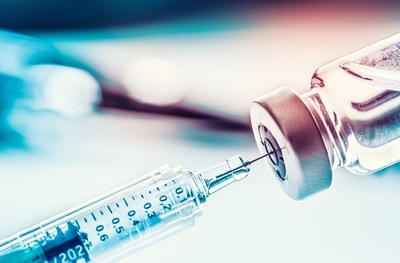Genital Herpes Vaccine Works in Rodents
A recent vaccine was developed by scientists at Perelman School of Medicine at the University of Pennsylvania that protects against genital herpes. The vaccine was administered on both mice and guinea pigs. Findings published in Science Immunology revealed "mostly sterilizing immunity" from the virus. This particular type of immunization is the strongest.
"We're extremely encouraged by the substantial immunizing effect our vaccine had in these animal models," said the study's principal investigator Harvey Friedman, MD, a professor of Infectious Diseases. "Based on these results, it is our hope that this vaccine could be translated into human studies to test both the safety and efficacy of our approach."
Using approaches in cutting edge cancer and immunotherapy studies, the developed vaccine was administered specifically to 64 mice that were then exposed to genital herpes. After 28 days, 63 of the mice displayed sterilizing immunity with no traces of the herpes infection and any evidence of the disease. The remaining mouse had a dormant infection without any priory genital herpes infection. The study was also applied to guinea pigs with similar results. Overall, no animal has developed genital lesions.
The vaccine, developed in collaboration between Penn Medicine and BioNTech, was filled with specific messenger RNA (mRNA) that creates proteins critical for strong immune responses. The vaccine stimulates three antibodies that block the herpes virus from entering cells and ensures that the virus doesn't "turn off" any innate immune system protective functions. Such an approach makes it unique than other methods for herpes vaccines because it often depends on inhibiting the entry of a virus.
Genital herpes, also known as the Herpes simplex virus type 2 or HSV-2, is the most common sexually-transmitted disease. Roughly 14 percent of Americans ages 14 to 59, and 11 percent of people in the same age range globally become infected. Symptoms include painful sores that spread to other areas of the body. The virus increases one's risk of getting HIV, and women who are infected and pregnant to threaten the fetus with infection particular during delivery.
"Along with physical symptoms, HSV-2 takes an emotional toll," said Friedman. "People worry over the transmission of the disease, and it can certainly have a negative effect on intimate relationships."
Learn more about genital herpes:
Source: Penn Medicine









